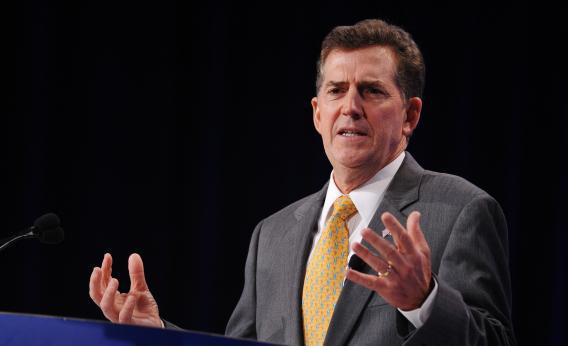I wrote over the weekend about Lincoln and the decline of patronage power as not just a function of civil service reform, but also the increasingly lucrative opportunities available at lobbying firms or trade associations. Jonathan Bernstein noted that it’s not just corporate lobbying, either. On the Republican side at least there must be huge economic opportunities working for para-partisan or factional organizationals if Dick Armey can get an $8 million severance payment from FreedomWorks.
The news that Jim DeMint is going to quit a safe Senate seat and an important role as a Senate faction leader in order to run the Heritage Foundation also leaves you wondering about such matters. According to Mike Riggs, current Heritage CEO Ed Feulner earned a million dollar salary in 2010. That’s not bad, and DeMint is a much bigger “get” for Heritage than Feulner would be. A think tank presidency is also a great perch from which to pay a smart twentysomething to write a book that’s published under your byline and then pushed out to seemingly large audience for conservative political books.
Now obviously the typical member of congress is still trying to get re-elected. But I do feel like we’re seeing a rise in this particular move. It used to be that members of congress would quit to run for higher office or to genuinely retire. Members would seek lobbying or party-work jobs if they lost an election. But guys like Billy Tauzin and Evan Bayh have been blazing a trail that was formerly dominated by Hill staffers, namely moving voluntarily out of the public sector and into the lobbying space. When Representative Heath Shuler (D-N.C.) announced plans to resign at the young age of 40, for example, that naturally prompted questions about whether he was planning to become a lobbyist. He said no at the time, but on Nov. 26, Duke Energy announced that he’ll be their new vice president of Government Affairs.
